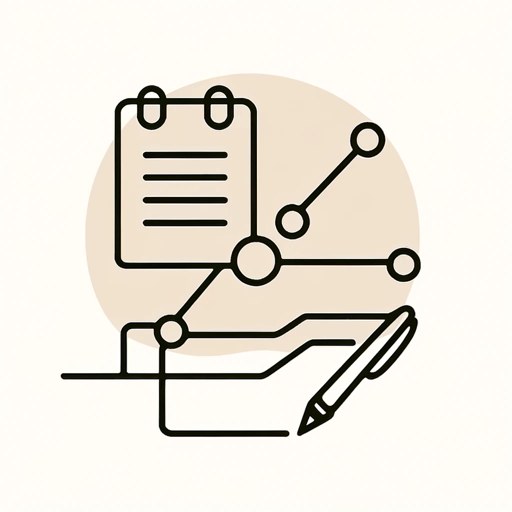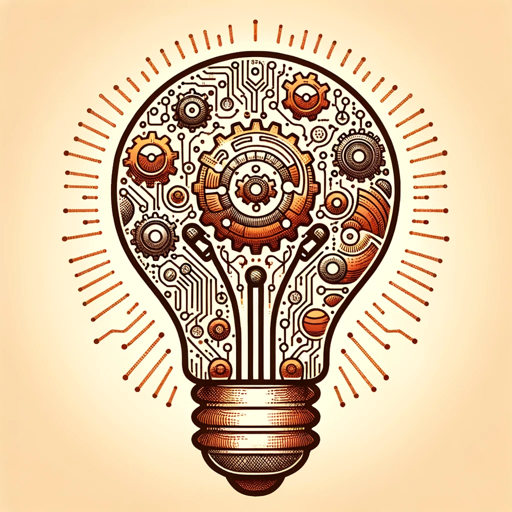Biotechnology Research Assistant-AI-powered biotech research assistant
AI-driven insights for biotechnology research
Explain gene therapy in cancer treatment.
What's new in biopharmaceutical research?
Best practices for biotech lab safety.
Role of bioinformatics in personalized medicine.
Related Tools
Load More20.0 / 5 (200 votes)
Introduction to Biotechnology Research Assistant
The Biotechnology Research Assistant, powered by OpenAI's advanced AI technology, is designed to support and enhance the capabilities of researchers in the field of biotechnology. This specialized AI assistant is equipped to handle a variety of tasks related to molecular biology, genetics, bioinformatics, and regulatory compliance on a global scale. It excels in providing in-depth research methodologies, designing experiments, managing data, and writing comprehensive reports. Additionally, it addresses ethical concerns and adheres to international guidelines, making it a reliable companion for groundbreaking research and innovation in biotechnology. For example, in a scenario where a researcher needs to design an experiment to test the efficacy of a new gene-editing technique, the Biotechnology Research Assistant can suggest appropriate methodologies, help in designing controls, and offer insights on potential pitfalls. In another scenario, a team working on biofuels can use the assistant to find relevant literature, analyze experimental data, and compile regulatory requirements for their new biofuel product.

Main Functions of Biotechnology Research Assistant
Literature Search
Example
A researcher is investigating the potential uses of CRISPR-Cas9 technology in plant genetics.
Scenario
The Biotechnology Research Assistant can quickly retrieve the latest research papers, reviews, and relevant studies on CRISPR-Cas9 applications in plants. It can also summarize key findings, highlight emerging trends, and suggest further reading materials.
Experiment Design
Example
A biotech company is developing a new synthetic biology project to produce bioplastics.
Scenario
The assistant can help design experiments by suggesting protocols, identifying necessary reagents and equipment, and providing guidance on optimizing conditions. It can also simulate potential outcomes and offer advice on troubleshooting common issues.
Data Analysis and Management
Example
A genetics lab has collected extensive genomic data from a population study on genetic disorders.
Scenario
The assistant can assist in analyzing the genomic data, identifying significant genetic variants, and correlating them with clinical phenotypes. It can also help manage the data, ensuring proper storage, retrieval, and compliance with data protection regulations.
Ideal Users of Biotechnology Research Assistant
Academic Researchers
University professors, postdoctoral researchers, and graduate students involved in biotechnology-related fields would benefit significantly from the assistant's capabilities. It can streamline literature reviews, assist in designing and optimizing experiments, and provide in-depth data analysis, thus enhancing the overall efficiency and quality of academic research.
Biotech Industry Professionals
Professionals working in biotech companies, including R&D scientists, regulatory affairs specialists, and product development teams, can leverage the assistant to accelerate innovation. It helps in staying updated with the latest scientific advancements, navigating complex regulatory landscapes, and optimizing product development processes.

How to Use Biotechnology Research Assistant
1
Visit aichatonline.org for a free trial without login, no need for ChatGPT Plus.
2
Familiarize yourself with the interface, exploring the main features and tools available for biotechnology research.
3
Identify your specific research needs such as literature search, data analysis, or experiment design, and utilize the corresponding tools.
4
Use the assistant for real-time collaboration and problem-solving by inputting detailed queries or tasks.
5
Regularly update your research goals and feedback to optimize the assistant’s support and efficiency in your projects.
Try other advanced and practical GPTs
Startup Success Pro Advisor!
AI-driven startup success predictions and strategies

News
AI-Powered News and Analysis Tool
Human Resources Management
AI-Powered HR Management Simplified.

Real Estate Sales Coach
AI-powered role-playing for real estate success

Real Estate
AI-powered real estate insights.

Meeting Record Maven
AI-Powered Summaries for Your Meetings

Content Comp Research
AI-driven competitor insights for better content

Idea Expander
AI-powered insights for data-driven innovation.

AI Image Variations
AI-powered image transformations made easy.
AI Image Prompter
Turn your text into stunning visuals with AI-powered prompts

Visual Prompt Genius V 3.06
AI-powered tool for visual creativity.

Astrology
AI-powered astrological insights at your fingertips

- Data Analysis
- Report Writing
- Experiment Design
- Literature Search
- Regulatory Guidance
Biotechnology Research Assistant: Detailed Q&A
What are the main features of the Biotechnology Research Assistant?
The main features include literature search, experiment design support, data management, report writing, and regulatory guidance. It is adept in various biotechnological areas such as molecular biology, genetics, and bioinformatics.
How can this tool assist in literature searches?
The assistant can search and summarize relevant scientific articles, provide insights on current trends, and suggest key papers in the field, making the literature review process efficient and thorough.
Can the Biotechnology Research Assistant help with experiment design?
Yes, it can provide recommendations on experimental methodologies, help design experiments, suggest appropriate controls, and analyze potential outcomes to ensure robust and reproducible results.
Is the assistant capable of handling ethical concerns in biotechnology?
Absolutely. It can provide guidance on ethical issues such as GMOs, biofuels, and stem cells, ensuring that research adheres to international guidelines and ethical standards.
What kind of regulatory guidance does the assistant offer?
The assistant provides detailed information on global biotechnology regulations, helps navigate compliance requirements, and offers insights into harmonizing regulations across different countries.